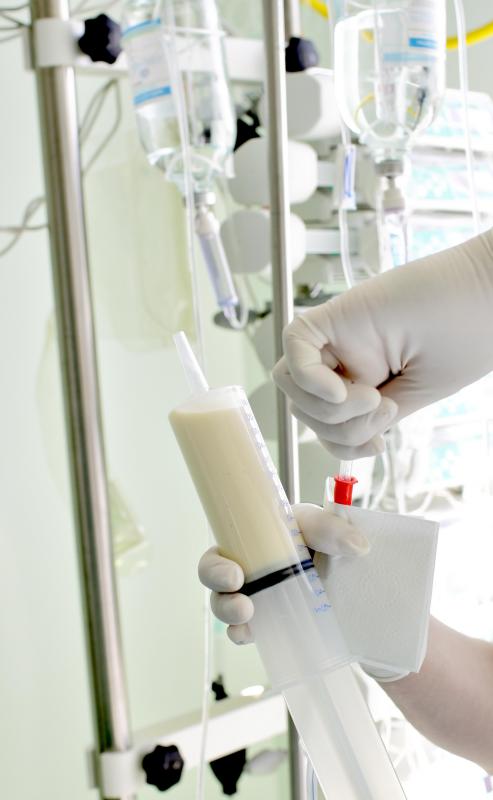At WiseGEEK, we're committed to delivering accurate, trustworthy information. Our expert-authored content is rigorously fact-checked and sourced from credible authorities. Discover how we uphold the highest standards in providing you with reliable knowledge.
What is Dystrophin?
Dystrophin is a large protein that is needed for muscles to function correctly. When it is damaged or absent, people suffer from muscular dystrophy. Those who lack any functional dystrophin protein suffer from Duchenne’s muscular dystrophy. Individuals with a mutated, but semi-functional protein have the less severe Becker’s muscular dystrophy.
The dystrophin protein is found in skeletal and cardiac muscles. It is part of a highly complex group of proteins that keeps muscle fibers strong. Some of these proteins have sugars on them and are known as glycoproteins. They are referred to as the dystrophin glycoprotein complex. Associated with them are a number of other proteins forming a complex known as the costamere.

The cytoskeleton is the backbone of the cell, and the costamere forms a critical connection between the cytoskeleton and the connective tissue outside of the cell. In addition to keeping the muscle fibers strong, it protects the muscles as they contract and relax. Without this group of proteins, and dystrophin in particular, the muscles cannot regenerate themselves. Over time, they are gradually damaged and die.

As of early 2010, the dystrophin gene (DMD) is the largest, known human gene. It can have hundreds of different mutations, which can lead to either Duchenne’s or Becker’s muscular dystrophy. This complex of diseases is characterized by cardiac disease and progressive wasting of the skeletal muscles, which are used for movement. This often leaves its victims wheelchair-bound and can cause early death. There is now a genetic test to identify carriers of a defective gene, which is one of the more common genetic diseases.

In addition to the cardiac disease associated with muscular dystrophy, there is an additional cardiac disorder associated with mutations in the DMD gene. It is known as X-linked dilated cardiomyopathy. It enlarges and weakens the heart muscle without affecting the skeletal muscle, and may be caused by a form of dystrophin that is specific to heart muscle.

There are many different types of dystrophin. In addition to those of the skeletal muscles and heart, some are found in nerve cells in the brain. Less is known about its function there. It is thought that this form is required for communication between nerve cells. There is a hypothesis that it might be involved in the development of mental retardation.

Mutations in many of the other proteins of the costamere can also cause cumulative muscle damage. This can lead to the development of other forms of muscular dystrophy. Since the regulation of muscle contraction is exquisitely balanced, there are many areas in which a flaw can lead to a pathological condition.
AS FEATURED ON:
AS FEATURED ON:

















Discuss this Article
Post your comments